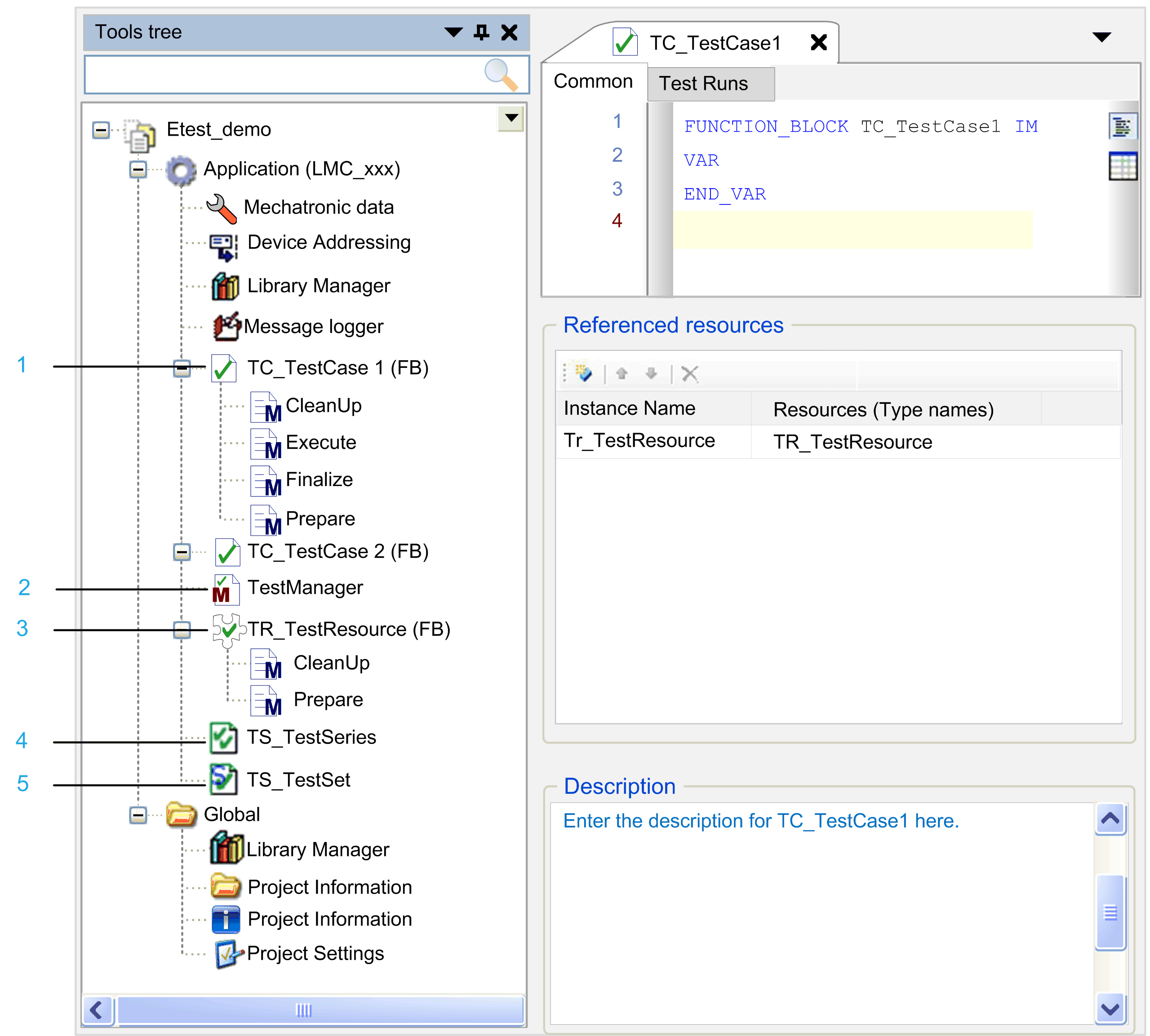|
|
-
Central component of ETEST.
-
Basically a function block. It uses the object-oriented extensions of the IEC 61131-3 standard that are available in Logic Builder.
-
Implements the interface IF_TestCase.
-
Contains methods, which in turn can use macros.
|
1
|
|
|
-
A test manager is an administration function block. Test cases and test series are performed by this function block as a sub process of the associated application.
-
If tests shall be executed for an application, the following conditions must be fulfilled:
Both are automatically created if you insert an ETEST object under an node.
|
2
|
|
|
-
Encapsulates the access to as well as the initialization of hardware and larger data structures used by test cases. ETEST creates only one instance per resource.
ETEST initializes the resources before they are used (by calling their Prepare method). ETEST de-initializes resources after they have been used (by calling their CleanUp method).
-
Before a test case is executed, ETEST verifies that the resources integrated into this test case are initialized and that the case is given a reference to the instance of the resource. After the test case has been completed, ETEST verifies that the resource is de-initialized again.
-
Further resources can be integrated in resources (as in test cases). Cyclical dependencies between resources are not allowed.
|
3
|
|
|
|
4
|
|
|
-
A test set is a table. Each row defines one test run. Each column maps to one parameter used throughout the test.
-
Uses the IEC-STRUCT to define the parameter sets. Each variable in the IEC-STRUCT defines one parameter. You can fill the table cells with the initialization values that are used for each test run.
-
Using an IEC-STRUCT allows you to define specific parameter sets or reuse existing IEC-STRUCT (for example, from a library).
|
5
|
